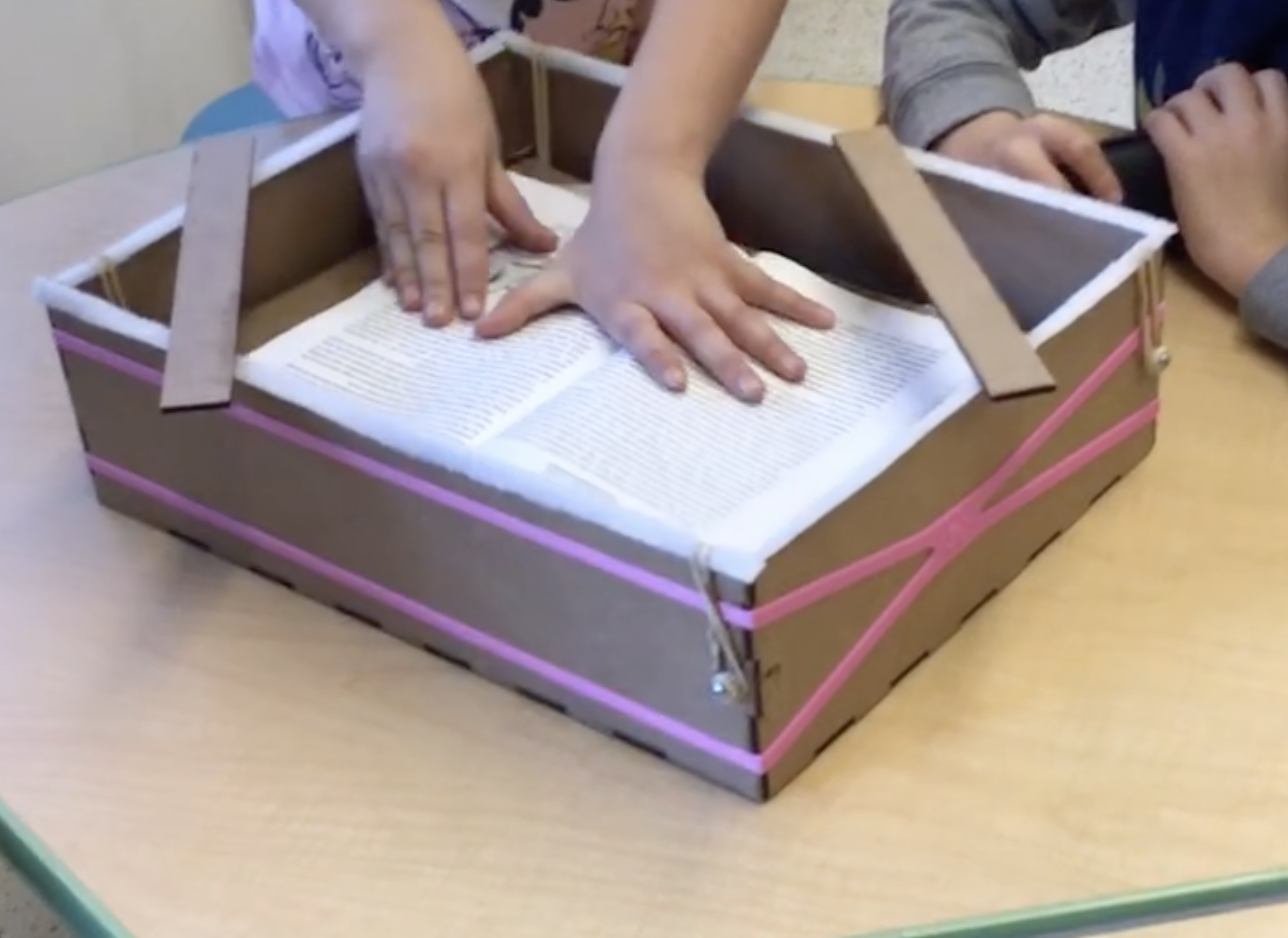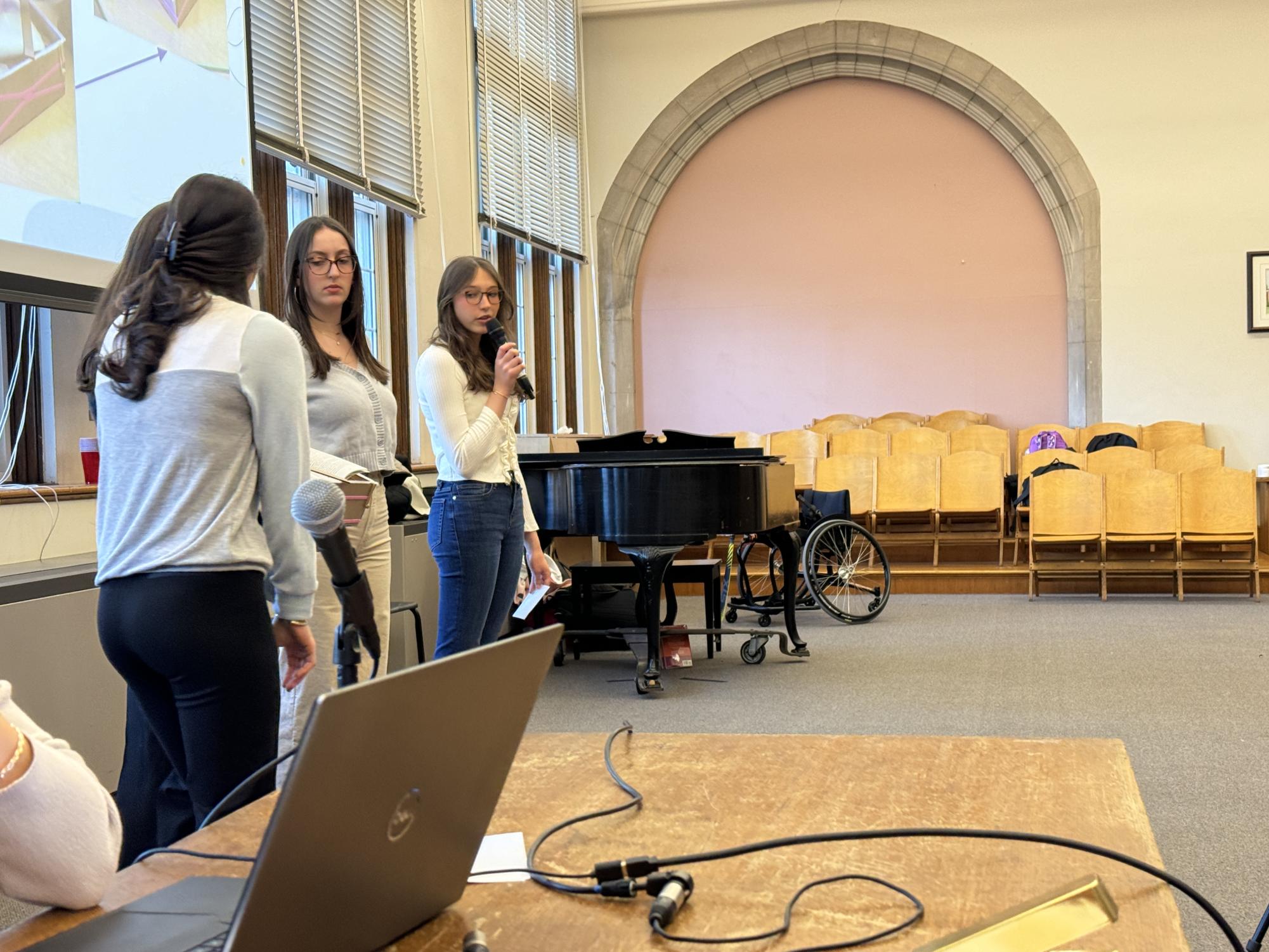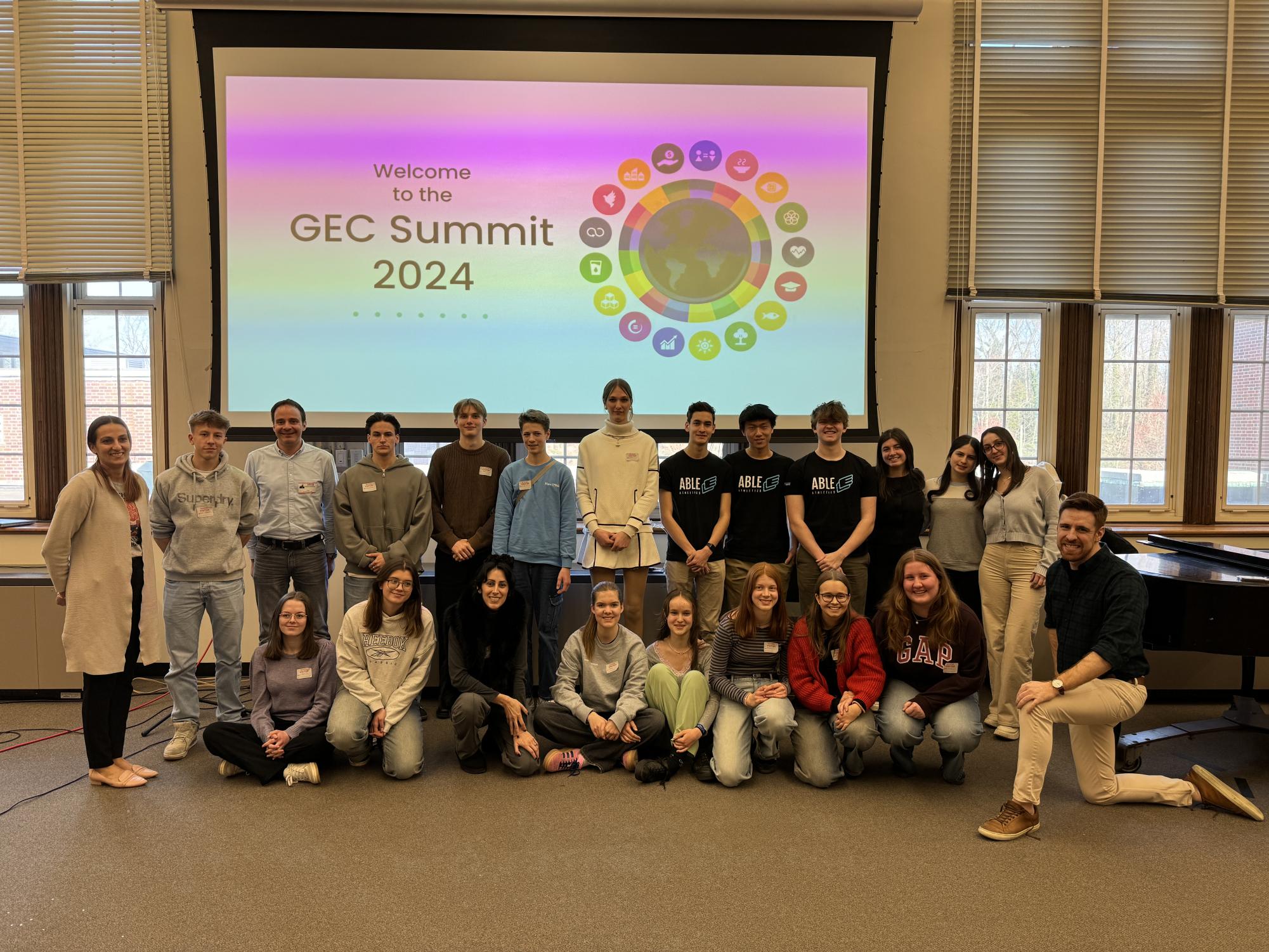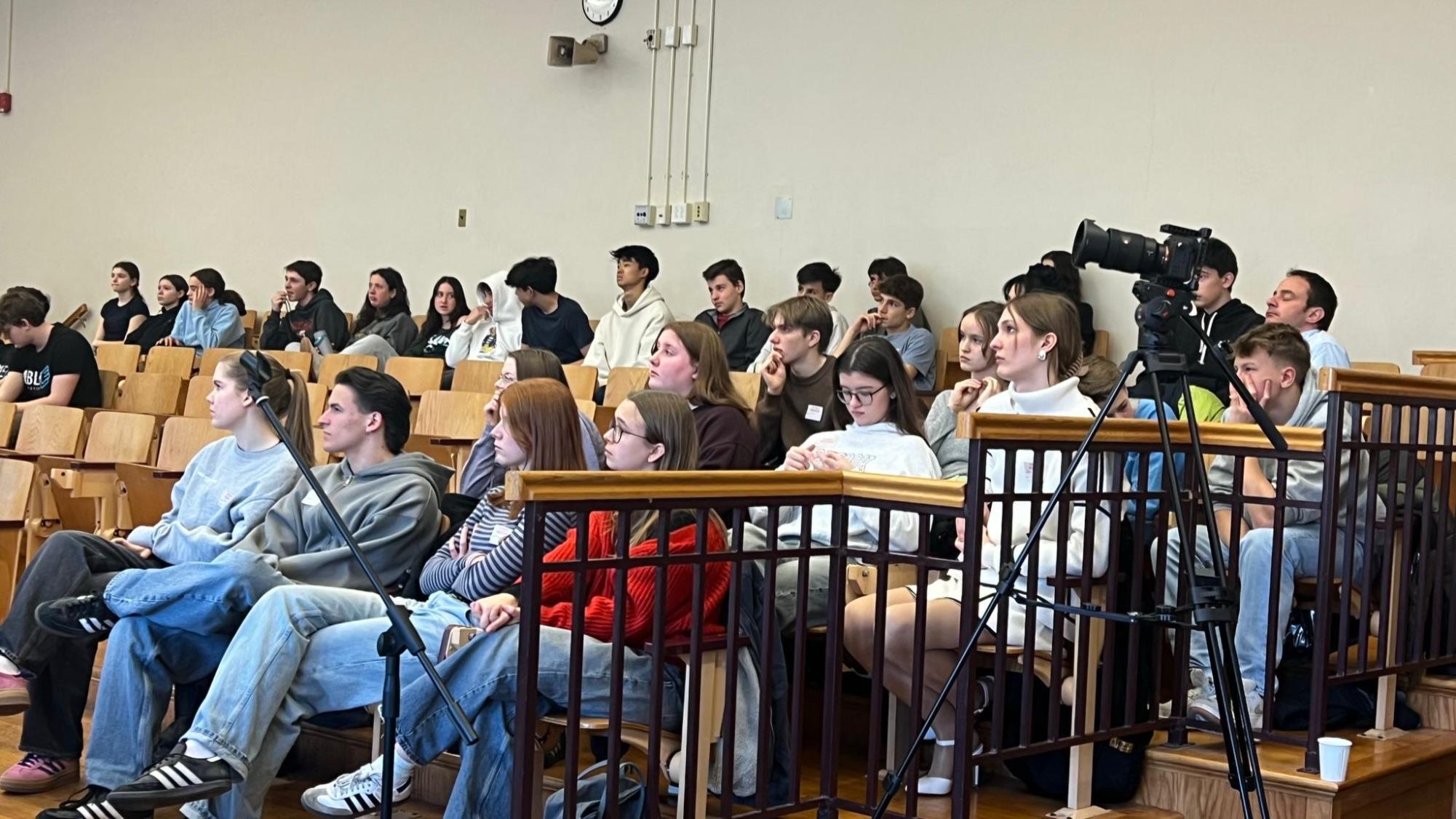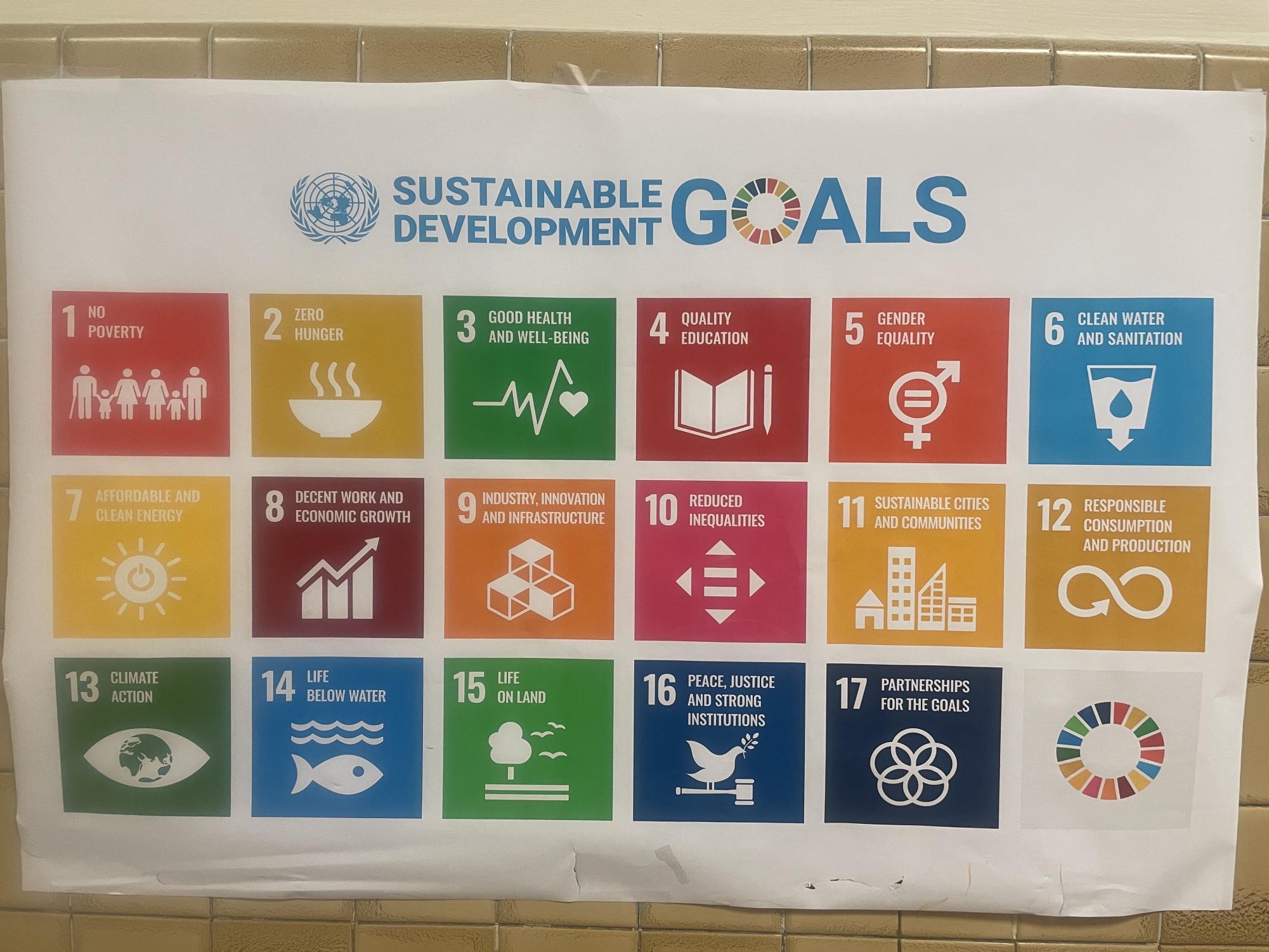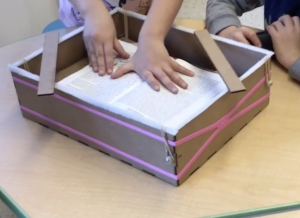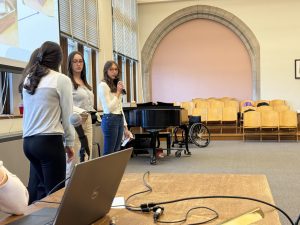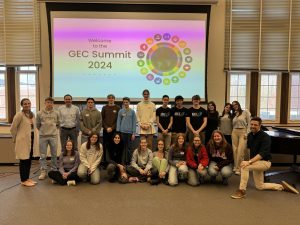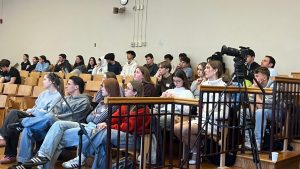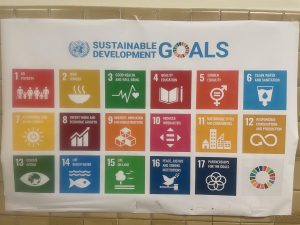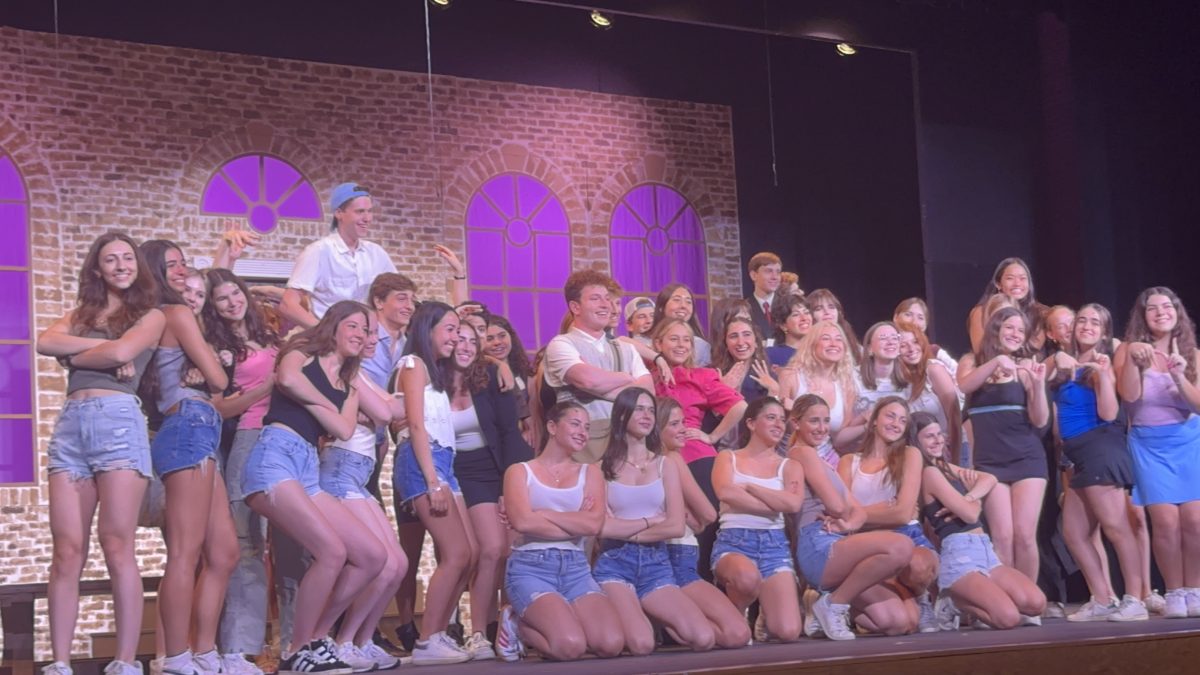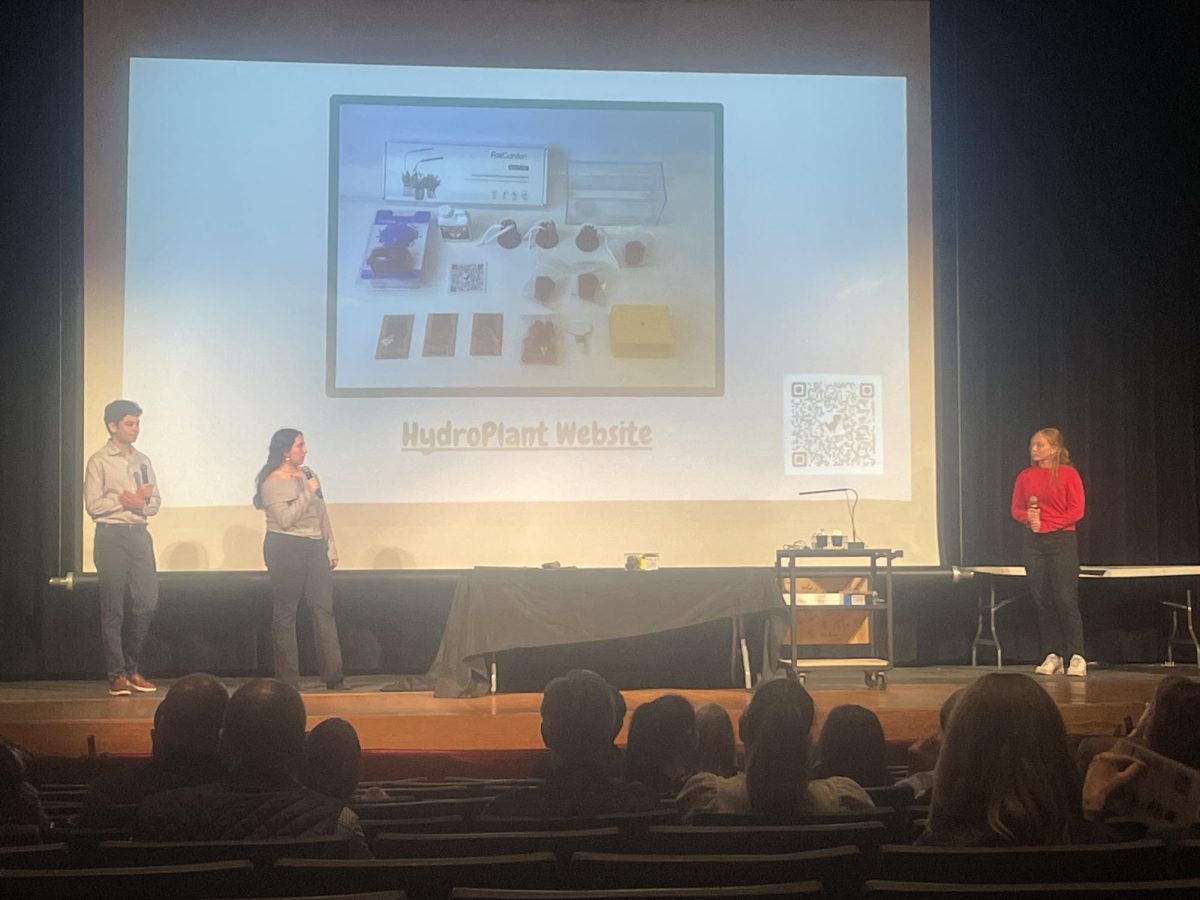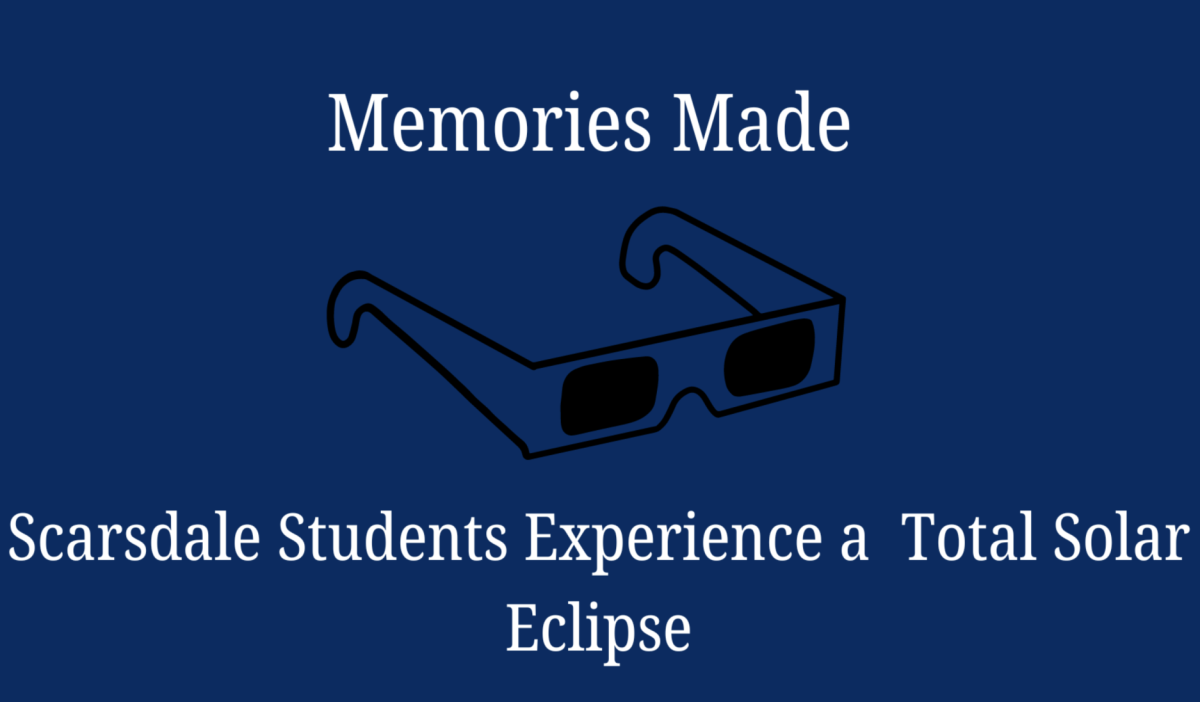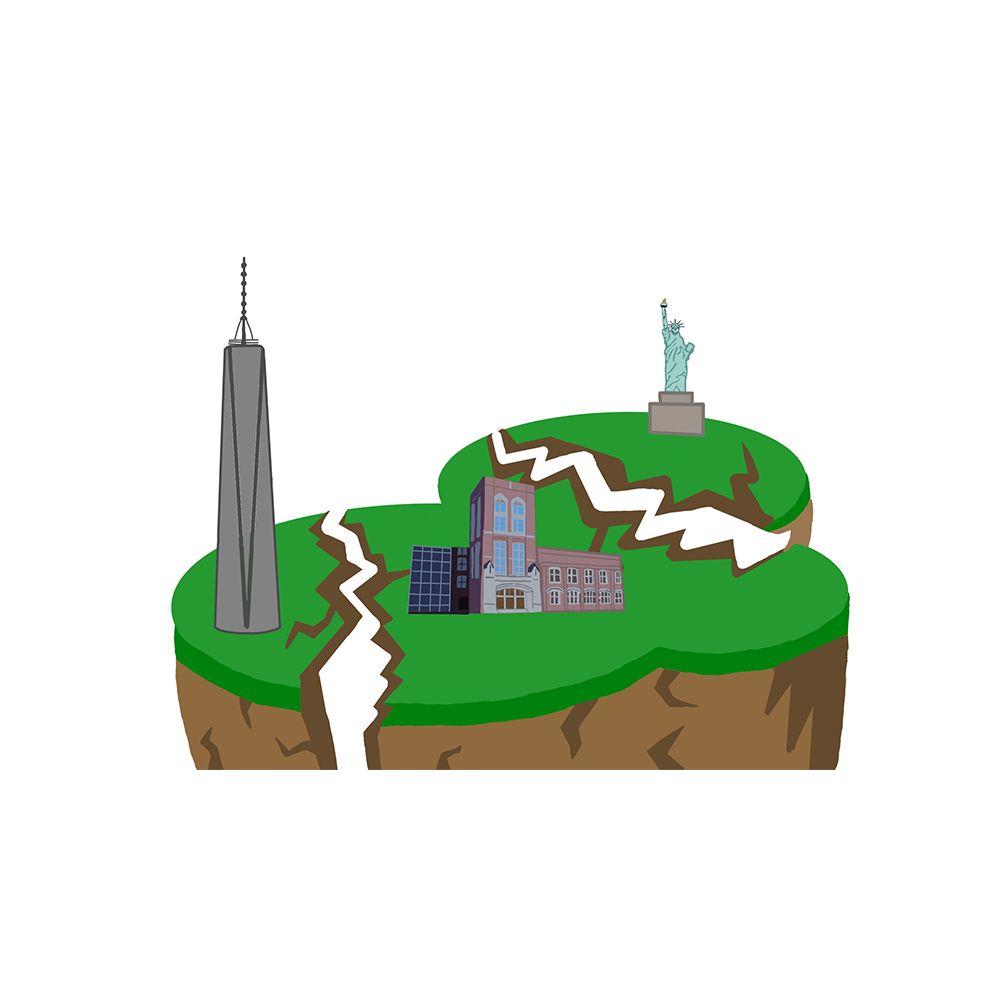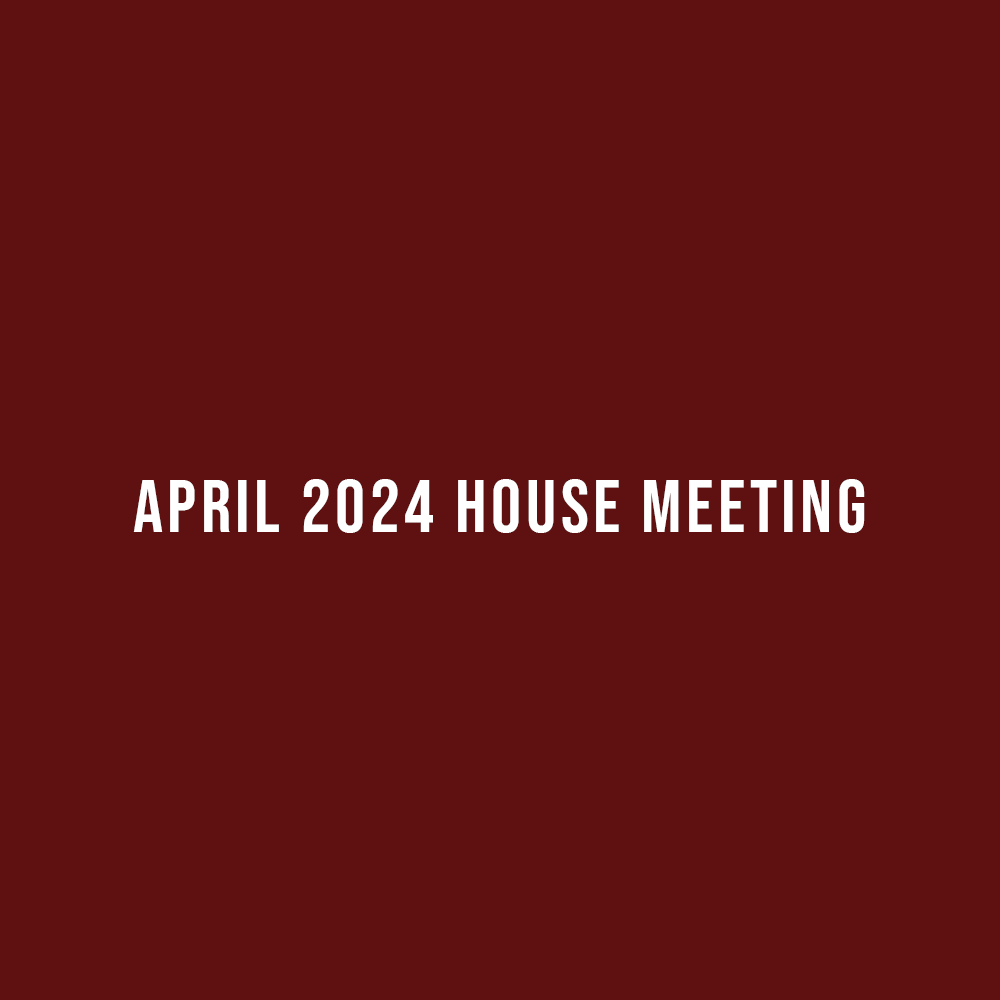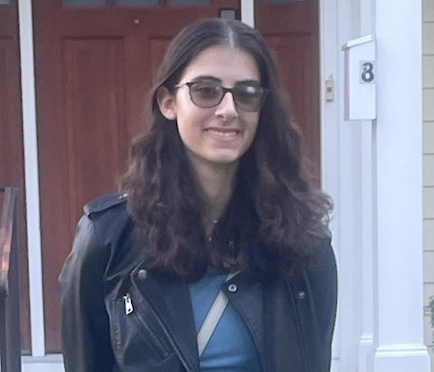On March 21st, 2024, SHS hosted the third annual Global Entrepreneurship Challenge (GEC). As an extension of the AT Entrepreneurship course, the GEC seeks to bring the problem-solving aspect of the class onto an international scale. Connecting students from around the world, this challenge focuses on solving problems in students’ communities that align with the United Nations’ Sustainable Development Goals (SDG).
Four years ago, inspired by the AT Entrepreneurship curriculum, SHS social studies teacher and Global Opportunities Coordinator Heather Waters, former STEAM Coordinator Lisa Yokana, and current STEAM Coordinator Brian McDonald brought forth the idea of connecting SHS’s current program and sharing it with Scarsdale’s global network of schools. The GEC helps students learn about their problems outside the community and across cultures.
“Students have these intercultural conversations, and…find the issues they’re facing might look slightly different country to country or community to community, but we’re all dealing with the same stuff and it is a very small world,” Waters explained.
From November until March, students work to find, understand, and solve their chosen problems. During this time, “[we] have three Zoom calls throughout the time that check in with one another, we get to know one another across cultures, then we get a chance to share what problems we are focused on and what do they look like in our communities internationally. And then we pitch our ideas to one another and get feedback.” McDonald explained. During the final months, students can meet with experts in the field who provide feedback, helping improve student’s products. This collaboration helps students establish connections and learn about their problems on a larger scale.
After months of hard work, students presented their final project in an elevator pitch-style presentation on March 21st in the Little Theatre. In-person, students from Germany joined SHS student groups to present, and on Zoom, students from partner schools in Florida, Italy, and Shanghai observed. The presentations uniquely targeted a problem central to the group’s community but also had a widespread impact. Projects ranged from adaptive clothing for people with limb loss to nicotine-free vapes and much more.
“[It] was great to hear what the other schools came up with as solutions to local challenges. I really enjoyed both hearing their presentations as well as presenting our idea,” Marin Shandler ’26 added.
Shandler was part of a student group that presented LECTIO. Focusing on the SDG of Quality Education, LECTIO is a tool that strives to make reading chapter books more accessible for students with fine motor difficulties.
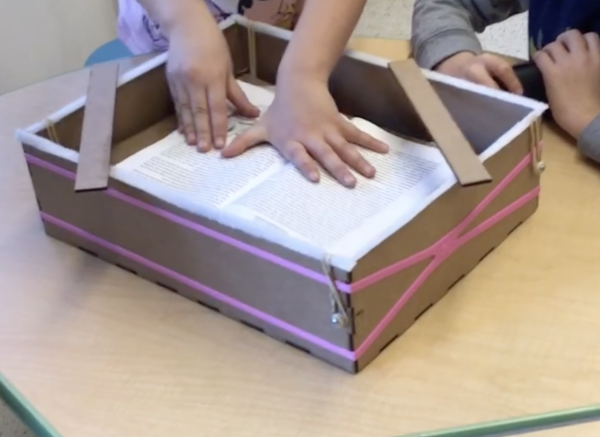
Given the time frame, it’s not always possible for students to get their ideas off the ground. These final presentations reflect the main goal of the challenge, for students to find and solve problems within their communities. At the end of this challenge, some groups are left with the foundations for solutions while others like LECTIO are already in the testing phase.
“It’s a starting point, we tell the schools, to continue their growth moving forward, continue to push groups to implement these solutions. Though it’s really tough within a few months to really get off the ground running…. You’re doing the heavy lifting beforehand and you’re creating the agency to say, I can make this change in my community. And I think that’s truly at the end of the day what we’re trying to strive for,” Mcdonald affirmed.

